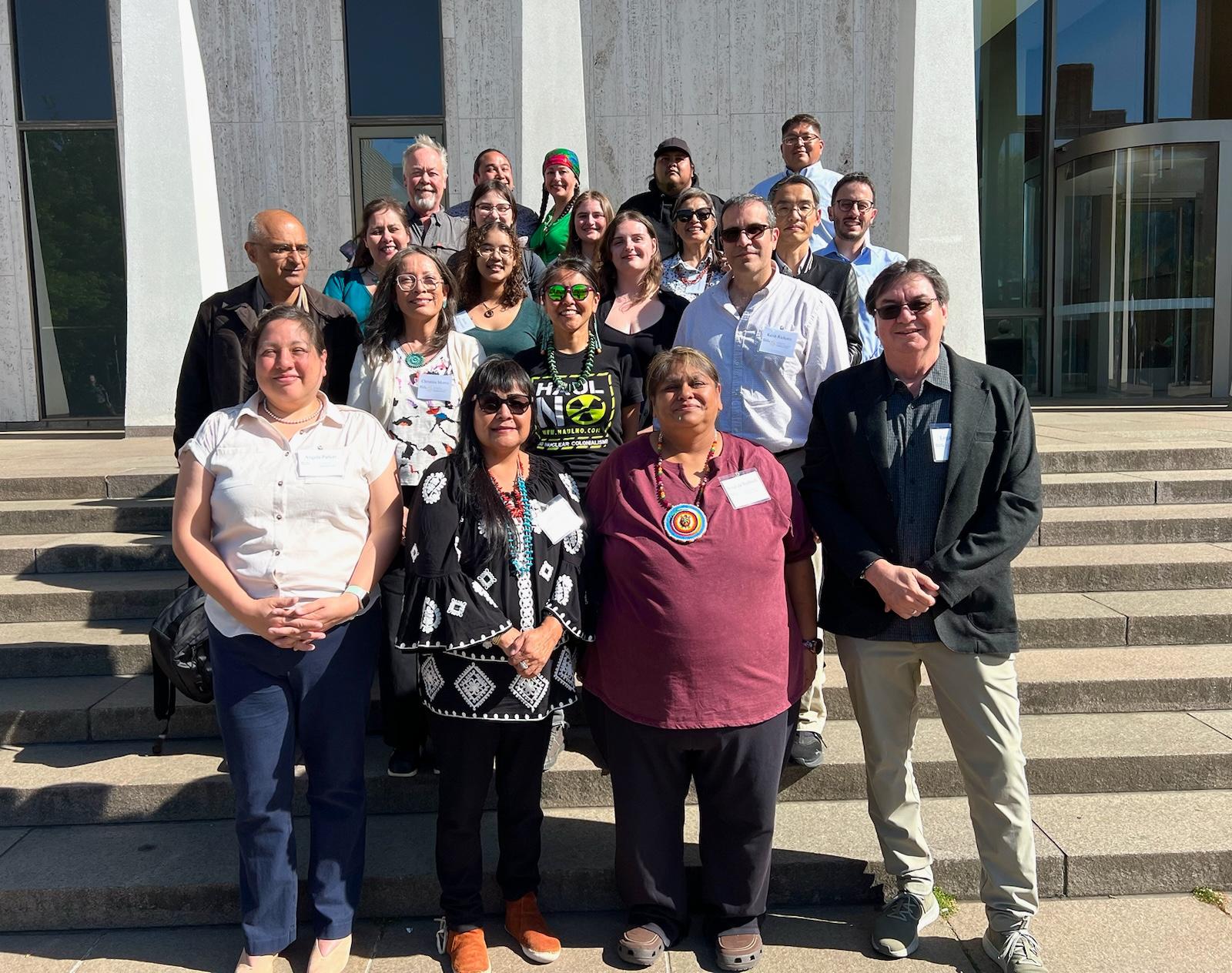June 05, 2024
Fifteen Native American scholars, activists and leaders joined Program on Science and Global Security (SGS) and other Princeton University researchers and students in May 2024 to participate in a workshop titled “Indian Country in the American Nuclear Age.”
The one and a half-day workshop aimed to foster conversations on how to better understand past, present and future nuclear harms to which Tribal Nations and their lands in the United States are subject. It explored in particular the connections and contradictions between nuclear weapons, militarism, and institutionalized violence and current democratic structures and practices. It also aimed to build relationships and solidarity, and to explore, create and strengthen resources for collective action and policy engagement.
The workshop was organized by SGS together with Nuclear Princeton, an SGS-supported undergraduate initiative that highlights the impacts of the nuclear age on Native lands and communities. It was co-sponsored by the Native American and Indigenous Studies Initiative, a cross-disciplinary faculty, student, staff, and community group focused on Indigenous peoples, and Native at Princeton, a student organization that provides a support network for and empowers American Indian, Alaska Native, Native Hawaiian, and other Indigenous students.
Participants included enrolled members of Choctaw Nation, Ute Mountain Ute Tribe, Turtle Mountain Band of Chippewa Indians, Laguna Pueblo, Navajo Nation, Western Shoshone, and the Three Affiliated Tribes of the Fort Berthold Indian Reservation. Princeton participants included faculty from the School of Public and International Affairs, Anthropology, and Geosciences, as well as researchers, and undergraduate and graduate students.
The workshop was divided into three sessions. On the first day, participants explored and discussed the nuclear harm and contamination of Tribal lands and peoples across the United States, with a focus on the Navajo Nation, Ute Tribe, the Western Shoshone, and the Fort Berthold Indian Reservation and its impacts on the wellbeing of people, nature, Tribal communities and cultures.
The first session focused on unpacking the experiences of living with the toxic environmental and political structures of uranium mining, nuclear materials and weapons production. Participants discussed the impact and legacy of uranium mining on indigenous people and land and the struggle to close and address the contamination from the last uranium mill operating in the United States.
The second session covered nuclear weapons connection to the civilian nuclear industry, as well as nuclear weapon testing and deployment. There was discussion of the broader impact of the nuclear fuel cycle and associated wastes as well as the unaddressed legacies of nuclear weapons testing in the United States. There also was a presentation about the intercontinental nuclear ballistic missiles deployed and operated by the US Air Force on the Fort Berthold Reservation of North Dakota.
The second day (and third session) was dedicated to discussing the nature and limits of current Indigenous politics and practices of contention and compromise regarding nuclear activities on Tribal lands, and the scope for new frames and advocacy to support the mobilization of resistance. A case study was the Jackpile uranium mine in New Mexico and how various domestic and international laws and forums provide opportunities for advancing justice and reparation.
In a concluding session, participants discussed the needs for the production and dissemination of knowledge, narratives and evidence by communities, scientists, lawyers, journalists, public health officials and others, and explored opportunities for collaboration.
As part of their visit to Princeton, some of the Native American participants visited and addressed the Princeton students at the Gaza Solidarity Encampment on campus. The speakers offered their support for the student protest and shared their experiences of struggles for justice.
